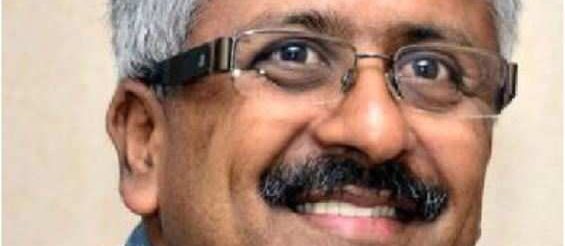Innovation and leadership by India’s young people through the pandemic

When crises appear, heroes rise. These heroes come from all genders, regions, special disability groups and ages. This fact is precisely true for India, as much as it is for the rest of the world.
The Covid-19 crisis has swept through the world like a Tsunami. All aspects of our lives have been disrupted, including health, education and livelihoods. While this catastrophic black swan event has impacted all age groups, young people, especially the age 10-24, have been affected the most. Apart from the effects of the virus, young people across the globe have been facing physical, mental and emotional trauma during the past 17+ months. Compounding this is the social, educational and economic insecurity that the lockdowns and curfews brought about.
The impact has been manifold. Young people are experiencing an emotional tragedy, and they are at high risk of neglect, abuse, distress and other mental health issues and exploitation. Access to essential health, social, protection and education services is constrained by lockdowns. Young people are losing family, caregivers, leaving them without proper care?. There has been an enormous learning loss as schools & colleges are shut across the country. 247 million children and young people are not able to access learning in school at all levels. In addition, many teachers have lost lives due to COVID-19. Remote learning is also disrupted in several states. Even before this second wave, digital tools and remote education wasn’t available for many.
Through this unprecedented crisis, one thing that has emerged is that young people want to lead and are capable of outstanding leadership. It is India’s youth that is making a significant contribution to the fight against the pandemic in their own unique but quiet ways. Mass media and social media are flooded with positive stories of youth innovation and leadership in times of COVID-19. It is young people who have been at the forefront, whether developing technological solutions, helping people on the ground with essential services, or simply asking people to follow Covid Appropriate Behaviour. Young people have also been leading action protecting the rights of marginalised groups and acting as peer counsellors or facilitators of safe spaces for other young people. These actions are true for both the pre-pandemic and post-pandemic worlds.
While young people have the energy, intellect and willingness to change the world for the better, they can only do this if they are provided with the right set of skills, opportunities, and empowerment tools. This is where the role of all stakeholders, including Governments, the Private Sector, Civil Society and Media, becomes crucial. Society needs to trust the youth and we must understand that young people are the innovators, creators, builders, and leaders of the future. What is needed is a facilitatory eco-system in which young people can access the tools required to not only cope with the present but also transform the future as we all learn to grapple with the uncertainties and vulnerabilities that is being experienced.
Our world is home to 1.8 billion+ young people between the ages of 10 and 24, the largest generation of young people in the history of the world. With more than 300 million+ 10–24-year-olds, India has the world’s largest youth population and will continue to hold this until the next 20 years.
Never have there been so many young people in any country at the same time. Never again is there likely to be such potential for economic and social progress. Governments, the Private Sector, Civil Society and Media must focus on the potential of young people and the role they will play in post-pandemic recovery and shaping the future of our world. We must realise the importance of building an ecosystem for young people in terms of education, 21st-century skills, career guidance and economic opportunities. We must begin to explore alternate ‘for-benefit’ economic models that are shaped by the youth with the intent of ensuring ‘private gains’ while resulting in ‘public good’.
Let us move to what action is needed to prepare our young people to be responsible adults, to skill them for jobs that are yet to be created, technologies not yet invented, and solve problems not yet anticipated. To help them face and navigate through such uncertainty, we need to equip our young people with such essential life and employability skills as collaboration, problem-solving, effective communication, decision making, financial management, as well as curiosity, imagination, resilience and self-regulation. Harnessing their potential and equipping them with the right skills will transform them into active change-makers.
This is where the role of all stakeholders, including the Governments, the Private Sector, Civil Society, UN agencies, Start-ups, Media, and Academic Scholars becomes crucial.
As part of the UN Youth Policy 2030, in 2018, UNICEF launched the global Generation Unlimited movement to meet the urgent needs of young people between the ages of 10-24, expanding education, skill development and employment opportunities. The India chapter of Generation Unlimited – YuWaah – was launched in 2019.
How we meet the needs and aspirations of Generation Unlimited will define not only India’s future but also our planet’s collective future. In the hands of Generation Unlimited, the potential for global progress is truly unlimited. The future we want to predict will only happen if young people are given the tools, future skills, and a seat at the decision-making table. We can no longer plan a future for young people without young people.
{{{short}}}
{{#more}}
{{{long}}}… Read More
{{/more}}
{{/totalcount}}
{{^totalcount}}
